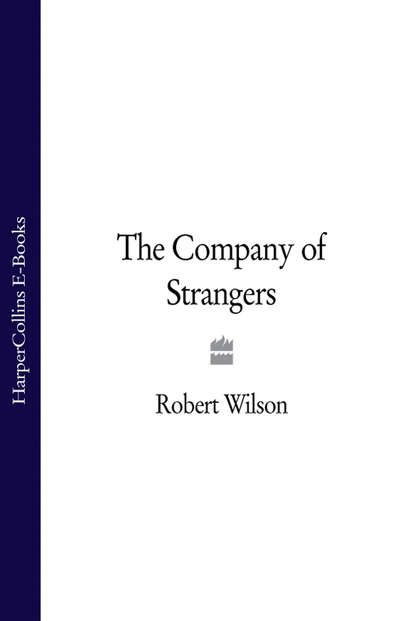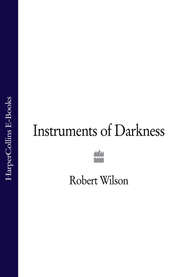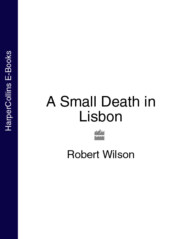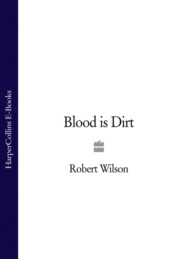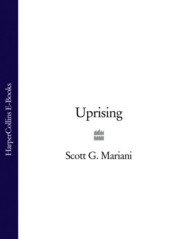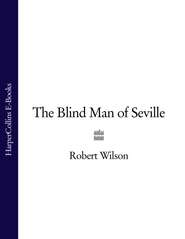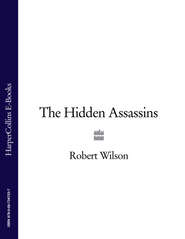По всем вопросам обращайтесь на: info@litportal.ru
(©) 2003-2024.
✖
The Company of Strangers
Автор
Год написания книги
2018
Настройки чтения
Размер шрифта
Высота строк
Поля
She pulled up short of saying ‘and not having a father’. She had a father now, of course. Graham Ashworth. Accountant. She looked out of the window and ordered her mind. They passed large villas set in their own, almost tropical gardens.
‘There’re crowned heads of Europe sitting out the war in Estoril,’ said Cardew. ‘That’s the kind of place it is.’
He turned off the main road at the Estoril railway station and drove into a square lined with hotels and cafés surrounding some gardens with palm trees and beds of roses, which gradually sloped up to a modern building at the top.
They passed the Hotel Palácio which Cardew told her was ‘ours’ and next door the Hotel Parque which was ‘theirs’. They went round the back of the modern building at the top which proved to be the casino, and Cardew pointed out a narrow, overgrown passage and a gate in the hedgerow further up, which was the back way into the Wilsheres’ garden. They climbed higher, right to the top of the hill, past gardens enclosed by privilege, hugging the towering phoenix palms and spiked fans of the Washingtonians, while the brash purple lights of bougainvillea tried to escape over the wall. Anne straightened her sunglasses on her nose, rested an elbow on the car window ledge, wished she had a cigarette going, which she thought would be the final detail of a leading actress’s style, coming into her Riviera home.
‘You didn’t say whether you liked Wilshere,’ said Anne, catching sight of herself in the wing mirror.
Cardew stared intently at the windscreen as if the entrails of squashed insects might lead him somewhere. They pulled up at an ornate gateway, walls curving up and scrolling against solid stone posts, each of which sported a giant carved pineapple on top. A tiled panel bore the words Quinta da Águia and the wrought-iron gates an elaborate QA design.
‘Here’s an insight into the man,’ said Cardew. ‘This place used to be called Quinta do Cisne, Swan House, if you like. He’s renamed it Eagle House. His little joke, I think.’
‘I don’t get it.’
‘He does business with the Americans and the Germans. Both countries use the eagle as their national symbol.’
‘Maybe he’s just being a gentleman.’
‘How’s that?’
‘Making everybody feel comfortable…unless they’re Marjorie,’ she said.
The driveway was cobbled all the way up to the house, white with black geometric patterns, just as she’d seen on the Lisbon pavements. It was lined with pink oleanders, very mature, almost trees. They came out of the oleanders into a square in front of the house which had a fountain in the middle, water spouting from a dolphin’s mouth. Lawn sloped away to distant hedges, a stepped, cobbled path ran down one side towards the bottom of the garden and the back gateway to possible financial ruin. The view reached to the hotels and palms of Estoril’s main square, the railway station and the ocean beyond.
The house itself was vast and box-like, not an accumulation of extensions, not something organic that had grown with the owner’s mind or fortune, but a house that had been planned, finished and never again added to. Its ugliness was disguised by the leafy frills of an ancient wisteria whose tributaries reached the eaves of the terracotta tiled roof. They walked to the pillared porch, Anne fretting about her case left in the car.
The door was opened by a grotesquely bent old man, his head at right angles to his body and turned sideways so that he could look Cardew in the eye. He wore a black tailed jacket and striped trousers. He was backed up by a small, wide woman also dressed in black with a white apron and cap. Cardew’s Portuguese came out like an order for buttered scones but it was intelligible enough for the old man, who produced a length of cane from the back of his jacket and set off towards the car with the woman in tow. Another maid appeared, doing up her apron. She was even smaller than the first, with a face that had been pinched and drawn out to the length of a fox’s. Tiny eyes, closed up by malnourishment in pregnancy, flickered in her head. There was an exchange and the maid set off across the black and white chequered floor of the dark hall which was surrounded by oak panelling, and stairs that joined a gallery above. A huge, tiered iron chandelier hung from the wooden roof.
On either side of the door through which the maid had disappeared were two glass cases full of brightly coloured, naïve clay figurines. Dark, uncleaned oil paintings in heavy gilt frames hung above them. In one, the stern face of a bearded ancestor appeared as if through battle smoke, the woman standing behind his chair was pale with dark rings around her eyes as if illness had been a way of life.
‘Mafalda’s parents,’ said Cardew. ‘The Conde and Condessa. Dead now. She inherited the lot.’
Behind them the old man and the maid staggered in with Anne’s case suspended between them on the piece of cane. They started up the staircase and paused on the first landing. The old man held on to the shiny ball at the corner of the bannisters, panting. Anne felt the urge to get up there to help him and, sensing it, Cardew gripped her elbow. The other maid returned, taking tile-sized steps towards them, her foxy face nudging the air, suspicious, checking them for smells. Cardew steered Anne down the length of a wooden-floored corridor with a strip of carpet up the middle, tall mirrors on either side of mixed quality so that Anne appeared thin, chubby, wavy. A chandeliered dining room flashed past on the left. At the end of the corridor, just before the french windows out on to the back terrace, they turned right into a long, high room with six tall windows giving out on to the lawn. The shutters were open, the blue and gold designs on them faded from the fierce summer sun.
The quantity of furniture in the room gave the impression that there was a lot going on, that maps and compasses might have been helpful. This furniture was not in any way co-ordinated, colours clashed, brocade and velvet sat uncomfortably together, the muted carpets seemed embarrassed by the brashness and weight of it all. At the far end of the room was a carved marble fireplace which contained a frieze in bas-relief of an ancient people, Corinthians or Phoenicians, engaged in endless tussle with wild animals. Above the fireplace hung a painting, a hunting scene of wild and bloody savagery, with wild boar stuck and squealing and wounded dogs tossed in the air while mounted men with lances stared on.
Patrick Wilshere stood below this scene dressed in riding britches, boots and a loose, collarless white shirt undone at the neck. Cardew’s description of him as ‘rum’ and ‘not average’ was typical understatement. Wilshere had stepped out of a novel from a different, more romantic age. His grey hair, swept back behind his ears, was long, long enough so that it rested on the first vertebrae of his back. He had a moustache whose waxed tips pointed upwards and his eyes were creased at the corners as if on permanent look-out for the source of all amusement. His hands had long elegant fingers and they cradled a cut-glass tumbler half-full of amber liquid. He nudged himself away from the fireplace where he’d been leaning.
‘Meredith!’ he called down the room, pleased to see him, hearty.
The maid stepped back and Anne followed Cardew through the watercourse between the furniture to the small backwater where Wilshere stood, still with the faint reek of horse about him.
‘Sorry, haven’t had time to change,’ said Wilshere. ‘Been out on the hills all day, just got back and needed a blast to put the wind back in my sails. You must be Anne. Pleased to meet you. Been travelling all day, I expect. Could do with freshening up. Get yourself out of that suit and into something more comfortable. Yes. MARIA! If you can’t remember the maids’ names just shout Maria and you’ll get two or three.’
The maid came back and stood at the door.
‘All tiny, these people,’ said Wilshere, ‘no bigger than fairies. Come from my wife’s part of the country.’
He spoke in perfect Portuguese. The maid dipped and ducked in an attempted curtsy. Anne navigated the furniture to the door and followed the maid up the stairs and down a corridor to a room which would have been above the end of the living room. It was a corner room, with views of the sea and Estoril. There was a private bathroom which overlooked the terrace and, beyond some hedges, a grass tennis court, brown from the sun. The cast-iron bath had clawed feet holding on to small worlds. A shower rose the size of a frying pan stuck out from the wall. The maid left, closing the door. Anne waited for the footsteps to retreat, ran at the four-poster bed, flung herself at it wildly and writhed in luxury. She lay with her arms spread out, trying to encompass her new world.
She stripped, showered and changed into a pleated cotton skirt and a simple blouse which left her arms bare. She brushed out her hair, struck poses in the full-length mirror, pouting her mouth, flicking at her skirt, but still failed to match her surroundings.
She headed back down the corridor towards the stairs. A figure appeared at the far end of the gallery. A woman with a face whiter than her mother’s and long grey hair down to the middle of her back. She wore a white nightdress. The woman faded into the darkness of a room, shut the door.
Mafalda the Mad, very Jane Eyre, she thought, and fled down the stairs.
Anne returned to the living room, which was empty. Wilshere was sitting on his own on the back terrace in front of a wrought-iron table with a cigarette box and the cut-glass tumbler, emptier. He had his boots up on an unoccupied chair opposite. She joined him.
‘Ye-e-es,’ he said, ‘that’s better.’
‘What happened to Mr Cardew?’
‘Sit down, sit down, won’t you,’ he said, pulling her down into a chair next to him, his palm rough on her bare arm. His green eyes stroked her all over and the hand held on to the soft part below her shoulder. His look was neither prurient nor penetrative, two other looks she’d had that day, but attentive, oddly intimate, as if they were old friends, or even stronger – lovers, maybe, who’d had a life together, parted and come back for another visit.
‘Drink?’
How to play this? She’d been hoping to observe while Cardew talked but now she was in it. He likes a girl with spunk.
‘Gin,’ she said, ‘and tonic.’
‘Excellent,’ he said, releasing her arm, calling a boy over, who Anne hadn’t seen in the shade of the terrace.
Wilshere punched some words into him and drained his own glass which he handed over.
‘Smoke?’
She took a cigarette which he lit for her. She blew the smoke out into the still, very hot evening. It smelled like burnt dung. The boy returned and laid out two tumblers and a small dish of black, shiny olives. They chinked glasses. The cold drink and the fizz of the tonic smacked into her system and she had to restrain herself from jutting her breasts.
‘You’ll probably want to go to the beach tomorrow,’ said Wilshere, ‘although I should warn you that our friendly dictator, Dr Salazar, does not agree with men and women disporting themselves semi-naked on the strand. There are police. An intimidating squad of fearless men whose job it is to maintain the moral rectitude of the country by sniffing out depravity at source. All those refugees, you see, brought their immoral ideas and fashions with them and the good Doctor’s determined that it won’t get out of hand. The three F’s. Football, Fado and Fátima. The great man’s solution to the evils of modern society.’
‘Fado?’
‘Singing. Very sad singing…wailing, in fact,’ he said. ‘Perhaps some of my Irishness has worn off in this sunshine. All that rain and terrible history, I should have a natural inclination for drink and melancholy thought, but I don’t.’
‘Drink?’ asked Anne, archly, which earned a flash of white teeth.
‘I’ve never felt the need to brood over things. They happen. They pass. I move on. Construct. I’ve never been one for sitting about, longing for previous states. States of what? Lost innocence? Simpler times? And I don’t have much time for destiny or fate, which is what fado means. People who believe in destiny are invariably justifying their own failure. Don’t you think? Or am I a godless fellow?’
‘I thought belief in fate was just a way of accepting life’s inexplicability,’ said Anne, ‘and you still haven’t told me how fado is supposed to stiffen moral fibre. How can fate or destiny be a social policy?’
Wilshere smiled. Cardew had been right about spunk.
‘It’s what they sing about in the fado. Saudades – which is longings. I’ve no time for it. You know where it comes from? This is a country with a magnificent past, a tremendously powerful empire with the world’s wealth in their hands. Take the spice trade. The Portuguese controlled the trade that made food taste good…and then they lost it all and not only that…their capital was destroyed by a cataclysmic event.’
‘The earthquake.’
‘On All Souls’ Day too,’ he said. ‘Most of the population were in church. Crushed by falling roofs. Then flood and fire. The perils of Egypt, minus the plague and locusts, were visited on them in a few hours. So that’s where fado comes from. Dwelling in and on the past. There are other things too. Men putting out to sea in boats and not always coming back. The women left behind to fend for themselves and to sing them back into existence. Yes, it’s a sad place, Lisbon, and fado provides the anthems. That’s why I don’t live there. Go there as little as possible. You have to have the right spirit for the city and it’s not one that sits well with me. Pay no attention to fado. It’s just Salazar’s way of subduing the population. That and the miraculous sighting of the Virgin at Fátima…ye-e-e-s, Catholicism.’





